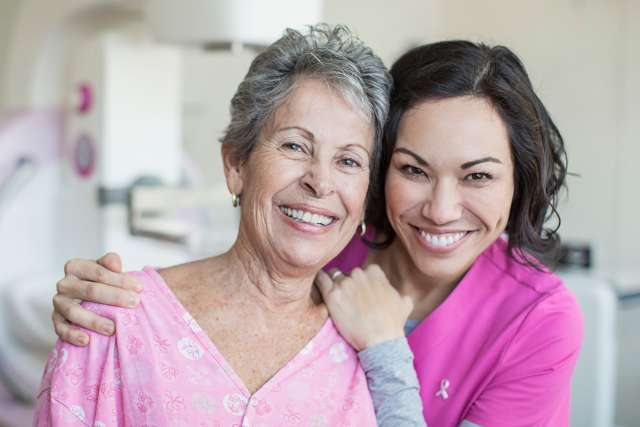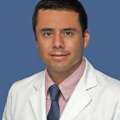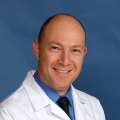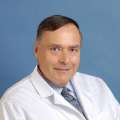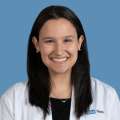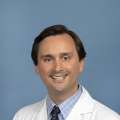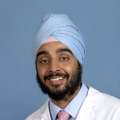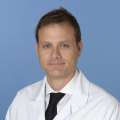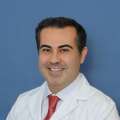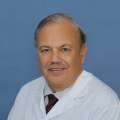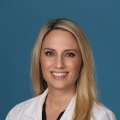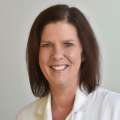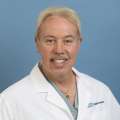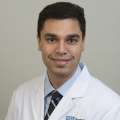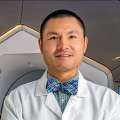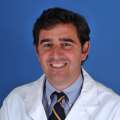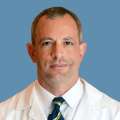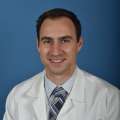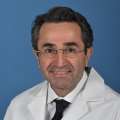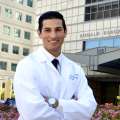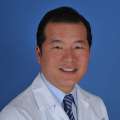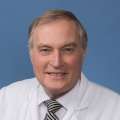Breast Cancer Care
Our world-renowned breast cancer experts deliver individualized, comprehensive and compassionate care to breast cancer patients.
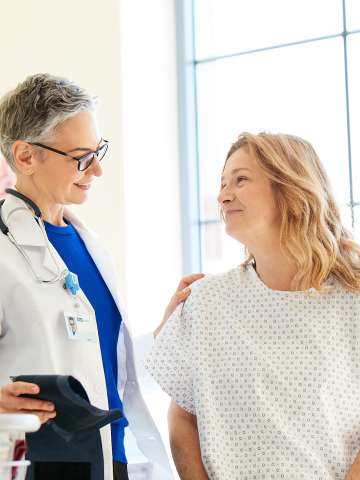
Why choose UCLA Health for breast cancer care?
We deliver breast cancer care through the UCLA Health Jonsson Comprehensive Cancer Center (JCCC). JCCC is one of only 53 cancer centers recognized by the National Institutes of Health for innovative cancer research and clinical care.
Our breast cancer care specialists offer unwavering support throughout your health journey. Count on us for:
- Expertise in breast cancer: Our specialists are passionate about leading-edge, innovative care. We offer the most up-to-date preventive, diagnostic and treatment options available.
- Compassionate, collaborative care: We partner with you and your family in the decision-making process. We ensure that you have all the information you need to weigh your care options.
- Access to innovative research: As an academic medical center, we offer our patients the opportunity to take part in the latest clinical trials that study new treatments. UCLA Health research led to the FDA approval of Herceptin®, a leading breast cancer treatment. While our Parkside clinic in Santa Monica is our primary clinic for breast cancer research, many of our clinical trials are also available at our satellite locations.
- Convenience: UCLA Health offers breast cancer care in nearly 20 ambulatory cancer care clinics close to work or home. Community practices are part of the JCCC and offer effective patient-centered care. We operate three breast multidisciplinary clinics — in Santa Monica, Beverly Hills and Santa Clarita — that simplify breast cancer care by combining specialist appointments into one introductory visit, scheduled by a patient navigator. For added convenience you can also ask questions and schedule appointments through our patient portal, myUCLAhealth.
Your breast cancer care team
Your care team includes different specialists who work together to deliver quality care. Experts may include:
- Medical oncologist: A physician who specializes in treating cancer with medicine and serves as your primary doctor throughout your cancer journey.
- Radiation oncologist: A doctor who specializes in treating cancer with high doses of radiation (radiation therapy).
- Surgical oncologist: A specialist who treats cancer by removing tumors from the breast and/or lymph nodes.
- Reconstructive plastic surgeon: A surgeon who can reconstruct breasts using implants, abdominal tissue or both.
- Radiologist: A physician who interprets breast imaging studies.
- Pathologist: A physician who examines tissue samples to diagnose disease.
- Genetic counselor: A medical professional who evaluates and counsels people on their inherited cancer risks.
- Psychosocial counselor: A medical professional who can help in coping with a cancer diagnosis.
Our breast health services
From diagnosis to treatment to post-cancer care, UCLA Health’s Breast Cancer Care program offers comprehensive services, including:
Early detection and diagnosis for breast cancer
A diagnosis helps us establish our plan. We use state-of-the-art technology to identify cancer early, when it’s most treatable.
- Breast imaging: The use of imaging tools to visualize tumors such as ultrasound, 2D and 3D mammography and MRI.
- Breast biopsy: A minimally invasive procedure where a doctor collects a sample of breast tissue to evaluate for suspected breast cancer. The specialist may perform a biopsy using X-ray (stereotactic), ultrasound or MRI guidance.
Cancer genetics
At the High-Risk Breast Clinic, our specialists work together to evaluate factors that make women more susceptible to breast cancer. We offer genetic counseling and testing for changes in the BRCA1 and BRCA2 genes, among others. Learn more about the cancer genetics program at UCLA Health.
Breast cancers we treat
Regardless of the diagnosis, we are here to help. We successfully treat a wide range of breast cancers, including:
- Adenocarcinoma (including invasive ductal or lobular carcninoma and pre-cancers such as carcinoma in situ/DCIS): The most common form of breast cancer. adenocarcinoma may originate in the ducts of the breast as invasive ductal carcinoma, or in the lobules of the breast as invasive lobular carcinoma. Breast cancer that forms and stays in the milk duct and does not "invade" beyond the wall of the duct, as in the case with DCIS, is primarily managed with surgery with or without radiation. Of the most invasive cancers, most of these continue to express their normal hormone receptors such as estrogen and progesterone, and are susceptible to hormone blocking treatments. About 20% are "HER2+," which is an aggressive but highly treatable subtype of breast cancer characterized by an "over-expression" of a protein called "HER2," resulting in a more rapid growth rate of the cancer. Approximately 10% do not express any of these three receptors (estrogen, progesterone, or HER2) and are so called "triple negative breast cancers," which can often be aggressive and require different treatment approaches.
- Inflammatory breast cancer: A rare and aggressive type of breast cancer that presents with symptoms such as breast redness and swelling.
- Male breast cancer: A rare form of cancer that usually occurs in the breast tissue of men.
- Paget's disease of the breast: An uncommon cancer type that affects the skin of the nipple or areola.
Treatments we offer
Our oncologists provide patients with lifesaving treatments, including:
Medical breast cancer treatments
When it is indicated to treat your cancer with medicine, our specialists use the most cutting-edge, evidence-based approaches, including:
- Anti-hormonal therapy: Medications that block or lower specific hormones such as estrogen, that otherwise can lead to breast cancer growth when not blocked.
- Chemotherapy: Drugs that work by killing rapidly dividing cells. Because not all breast cancer is the same, many patients will not require chemotherapy depending on the specifics of their disease.
- Radiation therapy: The use of high-energy X-rays to destroy cancer cells. We offer state-of-the-art breast radiation techniques including partial breast radiation. deep inspiratory breath hold, prone, IMRT and short-course breast radiation.
- HER2 Targeted therapy: Medicines that target the over-activated HER2 receptor in the case of "HER2-positive" breast cancer. These are often used in combination with chemotherapy.
- Immunotherapy: Medicines that work by harnessing the immune system to try to kill cancer cells. While immunotherapy does not work in all types of breast cancer, it seems to be most effective in select triple-negative breast cancers.
- Clinical trials: Research studies of promising new treatments that are not yet available to the public.
Breast surgery
Your care team will decide if surgery is necessary to remove cancer in the breast and reduce the risk of it returning. We help you weigh your surgical options, which include:
- Lumpectomy: Removing cancerous and abnormal breast tissue without removing the whole breast.
- Mastectomy: Removing one or both breasts.
- Lymph Node Resection: Removing either a few or many lymph nodes from under the armpit (the "axilla").
Reconstructive breast surgery
Breast reconstruction is a personal choice. Since everyone is different, our team offers consultations to discuss options, including forgoing reconstruction and “going flat.” We offer a full range of procedures, including:
- Immediate reconstruction: Inserting implants after your mastectomy, while you are still asleep.
- Delayed reconstruction: Placing implants in a separate procedure after you finish your cancer treatment.
- Tissue-based reconstruction (flap surgery): Transplanting extra skin and tissue from your abdomen or another part of your body to build natural-looking breasts.
- Nipple and areola reconstruction: Creating natural-looking nipples and areolas during an outpatient procedure. A medical tattoo artist can also add color to improve the appearance of your breasts.
- Oncoplastic surgery/breast reduction surgery: Surgery that can be paired with lumpectomy surgery to rearrange and/or remove tissue to achieve the best cosmetic result.
- “Going flat” after mastectomy: Creating a cosmetically acceptable flat chest wall after mastectomy.
Meet our expert team
Our accomplished specialists discover and deliver innovative cancer treatments. You’ll receive care from oncologists and surgeons who use the most advanced medical, surgical and radiation techniques available.
While much of the team is based on the main campuses of Westwood and Santa Monica, many are based in the greater Los Angeles area and the Central Coast.
Medical Oncology
Breast Surgery
Radiation Oncology
Plastic Surgery
Contact us
Call to request an appointment with a breast cancer specialist at UCLA Health.
Find your care
UCLA Health’s Breast care specialists develop a personalized plan to help you recover. For more information, reach a cancer care specialist at .
